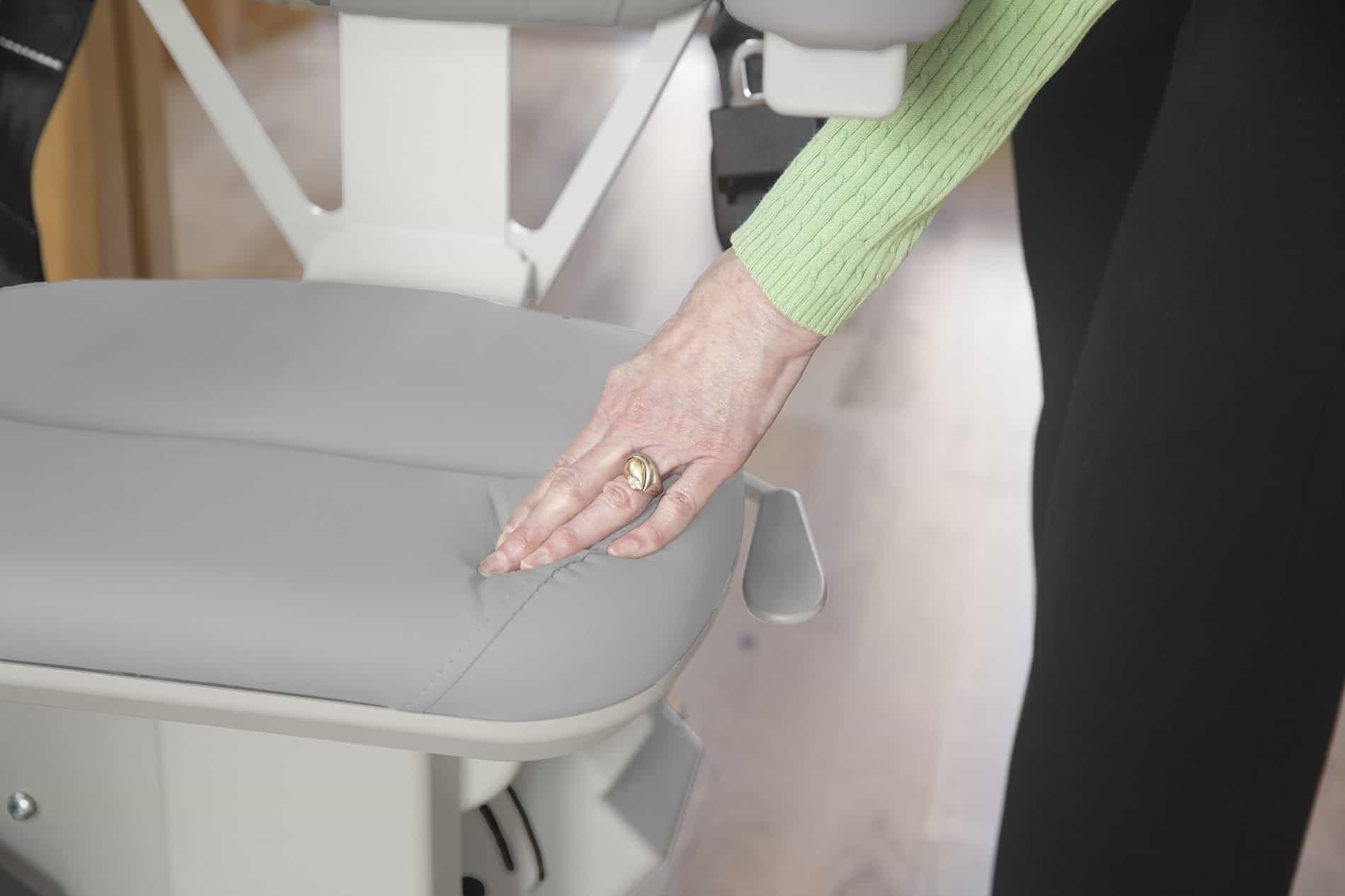When it comes to mobility aids and equipment, when will you know the time is right? It may be a tough conversation to have with a loved one but it is necessary to support aging in place and safety. Stairlifts can change lives for the better. Talk to your senior today.
The time comes when mobility aids are necessary for safety and accessibility but also for quality of life. These devices can change lives for the better when given a fair chance. Stairlifts can facilitate aging in place and autonomy for many seniors, providing them effortless access to areas of the home that may have previously been difficult.
When should you start to consider these types of things, and how do you know when the time is right?
Physical Limitations
An obvious scenario that is going to bring up a conversation surrounding the right time for aids is after a fall or other incident that demonstrates some degree of physical limitation. After a fall, an injury, or a scare, it may be easier and quite a relief, to all involved to bring up the possibility of investing in a stairlift to make the environment more accessible. Remember a stairlift helps reduce the risk of a fall and its aim is to enhance autonomy and independence, not take it away. From this perspective, the conversation should not be unpleasant but should result in a firm plan with a clear timeline.
Aging in Place
Is your loved one focused on aging in place? That is, do they want to remain in their home living situation for as long as possible? In this case, use the easy-to-follow AARP tool to assess their level of mobility and other capacities, too to determine when extra help might be prudent.
In terms of mobility, there is a ‘timed up and go’ test that evaluates how your loved one can stand and walk from a seated position, in preparation for them living on their own. This is not to say that a low performance on this testing tool rules out autonomy, it merely opens the discussion surrounding mobility aids and equipment that might make it easier and more accessible for the senior.
This testing tool also provides assessments for other areas, including mental health and wellbeing. In this test, you simply ask your senior loved one how they are feeling and whether they are sad, anxious, or down. Seniors with chronic illnesses are most at-risk for symptoms of depression, which can impact overall quality of life for a loved one.
Doctor’s Recommendation
Concerned about having a talk with your loved one about their level of mobility and autonomy? Talk to their primary provider or doctor first. If you have concerns such as issues related to your senior’s health and wellbeing, ask their provider for a recommendation. They might write a prescription for simple mobility aids and devices that can make life safer and easier for your loved one and you! It is fine to be concerned about your aging loved one, but be open to their feedback, positive or negative. in response.
Observable Difficulty
Do you have the kind of relationship with the senior that allows you to ask them if they are having difficulty? Some may not mind being asked as long as they are not being judged. Mobility aids should be presented as a blessing, rather than a curse. After all, many consumers are able to stay on their own and preserve their wellbeing by using things like stairlifts, walkers, or grab bars. These help to prevent accidents and injuries that could compromise independence. This fact alone is compelling enough for many to consider some mobility assistance.
Favorable Feedback
As long as there are no imminent safety risks, the topic of mobility aids does not have to be had in a single conversation. Plan on broaching the topic from time to time, with emphasis on the benefits and options available. Check out a website or online vendor for images that clearly depict the various types of equipment available. Be patient- most will be resistant or reticent about things that are new and unfamiliar. But, over time, your loved one could warm up to the idea of some support and stability when going about their ADLs (activities of daily living). Always treat them with respect even if you do not agree with their perspective! Reiterate the many features and advantages that these aids could provide- including greater autonomy over their own life.
Still waiting to have that conversation with your loved one about stairlifts? Do it. Talk to the team at Pacific Mobility for more information and reasons to invest in mobility aids. From stairlifts to grab bars, these aids are what make it possible to hold on to independence, while staying safe.
President, Husband, Father, Grandfather Graduate of UC Davis- Bio Sci Major- Go Aggies! Jeff has extensive experience in all of Pacific Mobility’s products and services, and specializes in accessibility products as well as stairlifts, ceiling lifts and custom wheel chairs. His hobbies include spending time with family, gardening, mountain biking, exercising and off road motorcycle riding.
24 years as Owner/President of Pacific Mobility Center – selling, installing, and servicing stairlifts, porch lifts, ceiling lifts, pool lifts, handicap ramping, specialty wheelchairs, scooters, power wheel chairs, and other power mobility devices
Certified Environmental Access Consultant since 2008
Licensed General Contractor since 1998
Certified Aging in Place Specialist since 2016
Board Member for Home Access Professionals
Member of Association of Members of the Accessibility Equipment Industry (AEMA)




